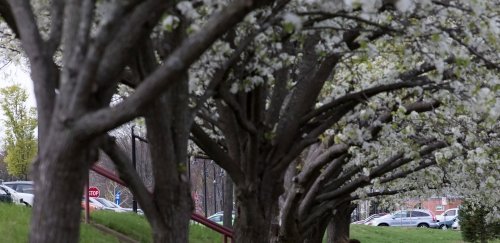Looks Like We’re Not in Kansas Anymore
- News & Events
- News
- Looks Like We’re Not in Kansas Anymore

While many struggle with Zoom fatigue, four professors are fostering a deeper appreciation for remote learning.

"When COVID-19 shut down the college, it was a formidable challenge for educators to suddenly adapt their pedagogical practice to virtual instruction seemingly overnight," says Associate Professor Susan Zoll, who teaches in the Department of Elementary Education.
Yet she and her colleagues took on the challenge as a learning opportunity. Assistant Professor of Elementary Education Natasha Feinberg, Assistant Professor of Special Education Beth Pinheiro and Associate Professor of Elementary Education Leslie Sevey, along with Zoll, decided to meet weekly to share their online teaching experiences and to review their students' feedback regarding their online learning experiences.
They held discussions over a 15-week period to evaluate and modify their teaching approaches in a fully virtual environment. Eventually, the educators co-wrote a paper on adapting to virtual instruction. Their paper uses the Appreciative Inquiry (AI) model as a framework for analysis. This model focuses on appreciating the best of what a system has to offer.
AI was developed by David Cooperrider. Cooperrider says that when he evaluated the efficacy of a system, he "...literally set aside all the deficiencies and looked only at the things that were giving life to the system when it was most alive. Then [he] took the best of the best to then speculate and leap to ideal-type possibilities for the future – to build a theory of possibility: not a theory of yesterday's world but of tomorrow's possibilities" (Greiten, et al., 2018).
The point is not to go back to the way things were always done, say these professors, but to re-envision the future where new teaching approaches are used in a fully virtual environment.
Similar to survey results of faculty and students across the country (Fox et al., 2020, Means & Neisler, 2020), the greatest challenge to online learning they found was keeping students engaged and motivated to learn in a remote environment. Students reported that they missed receiving feedback from instructors, they missed collaborating with their fellow students and they lacked equal access to reliable technology. The pandemic revealed new forms of inequity in education as some students reported using mobile phones to complete assignments because they lacked a home computer or adequate Internet capacity.
Based on these challenges Feinberg, Pinheiro, Sevey and Zoll made significant changes to their online courses.
To address the social/emotional needs of our students, "we intentionally created greater flexibility in our schedules to meet with students and address individual needs, often meeting during the evening or on weekends," says Zoll. "Advising sessions were also scheduled outside the usual meeting times to better meet students' availability." Feinberg and Pinheiro say, "weekly cafes – virtual meeting spaces – were created for students to connect informally with each other."
"Changes to our online courses have included improved organization of course materials; flexibility in course delivery; mini lectures to introduce or review content, followed by breakout rooms for small group discussion; and additional check-ins and reminders regarding upcoming assignments," says Sevey. "Feedback has been positive," Zoll says.
Overall, navigating the online terrain was like being Dorothy in The Wizard of Oz, say these faculty members. You realize you're not in Kansas anymore. However, by working together, they have come to feel at home in the virtual world. They appropriately titled their paper, "Found in Oz." This work is published in "The Planning and Changing Journal," by the Illinois State University's College of Education.
